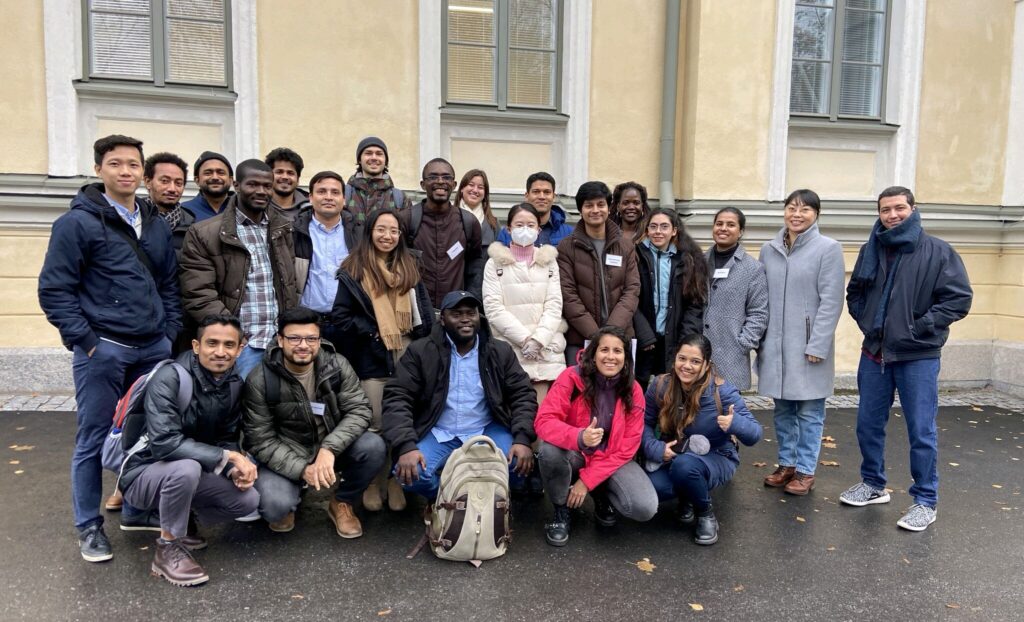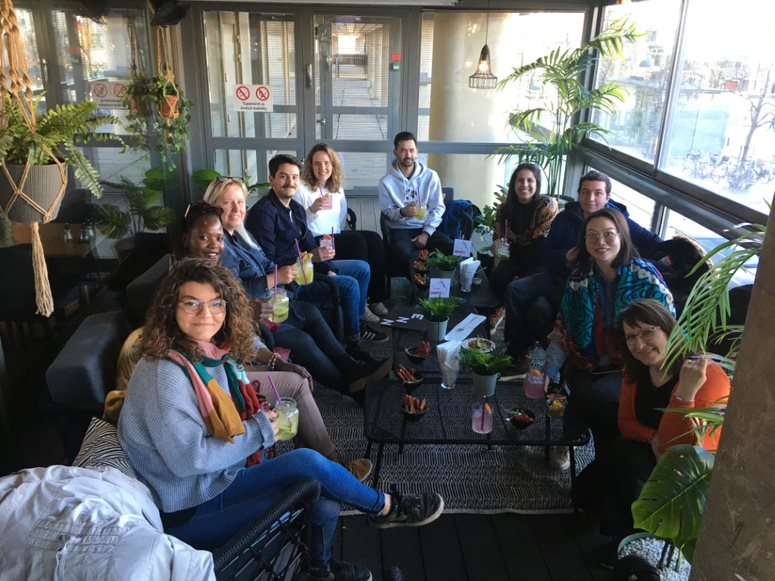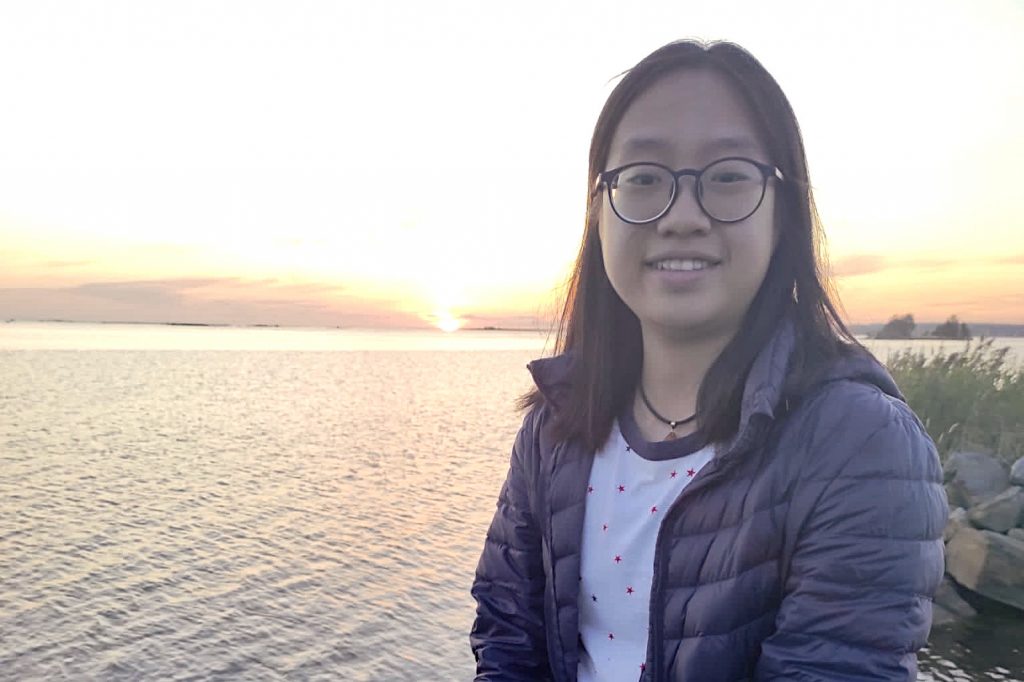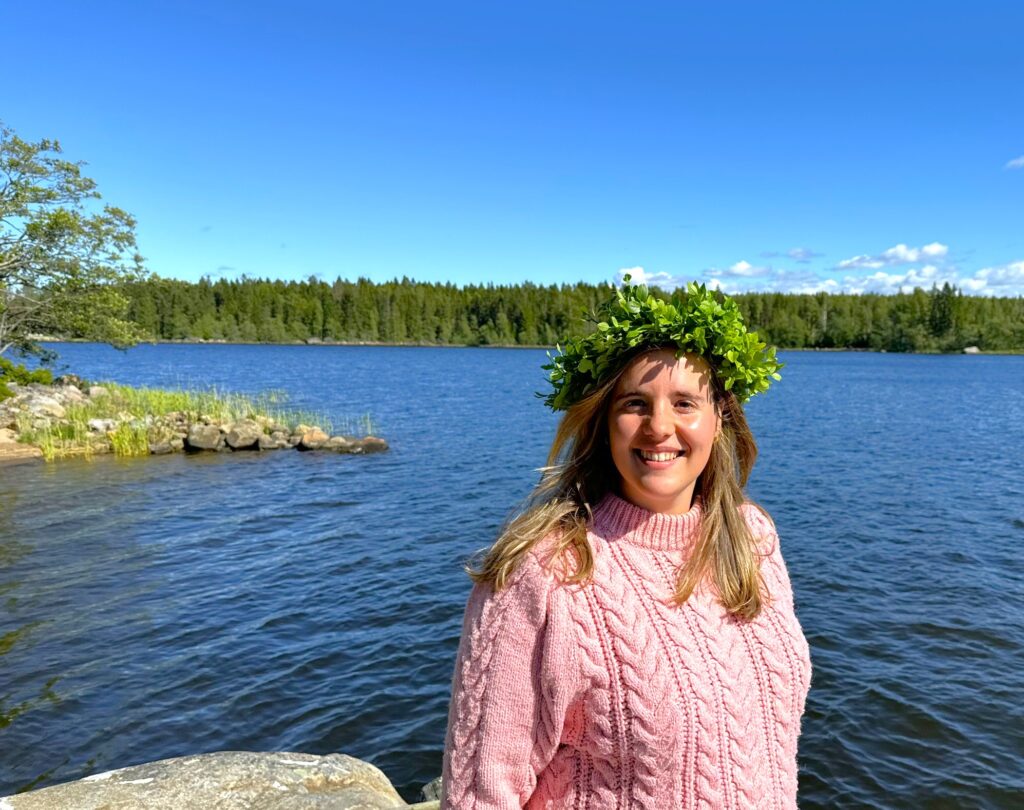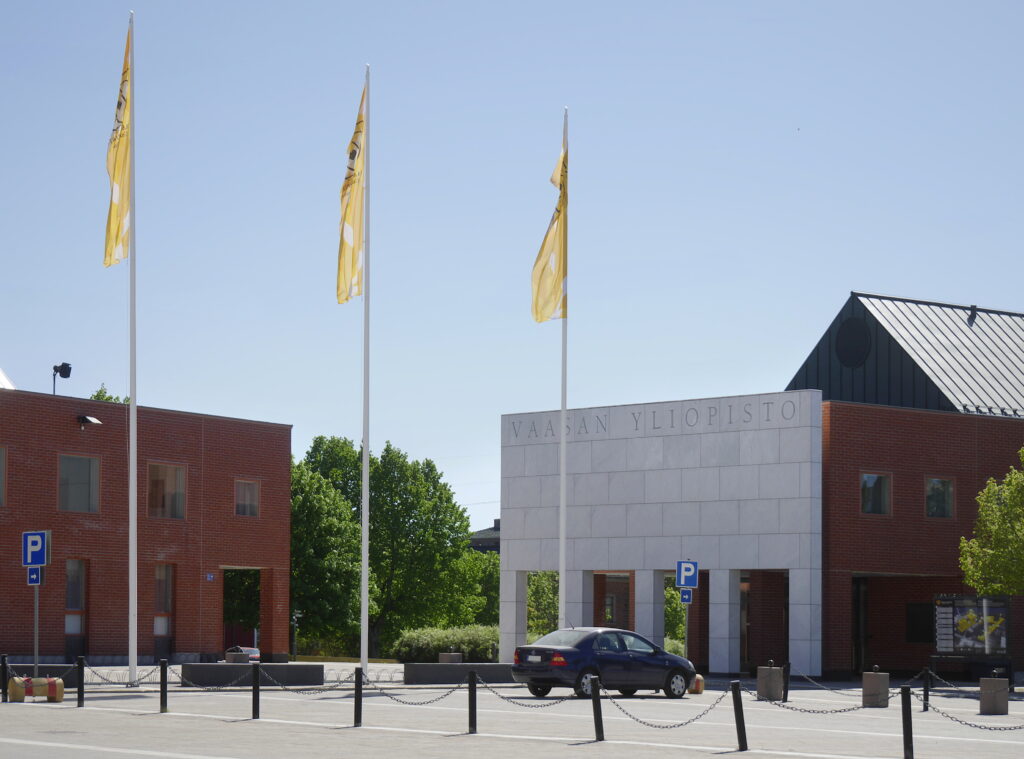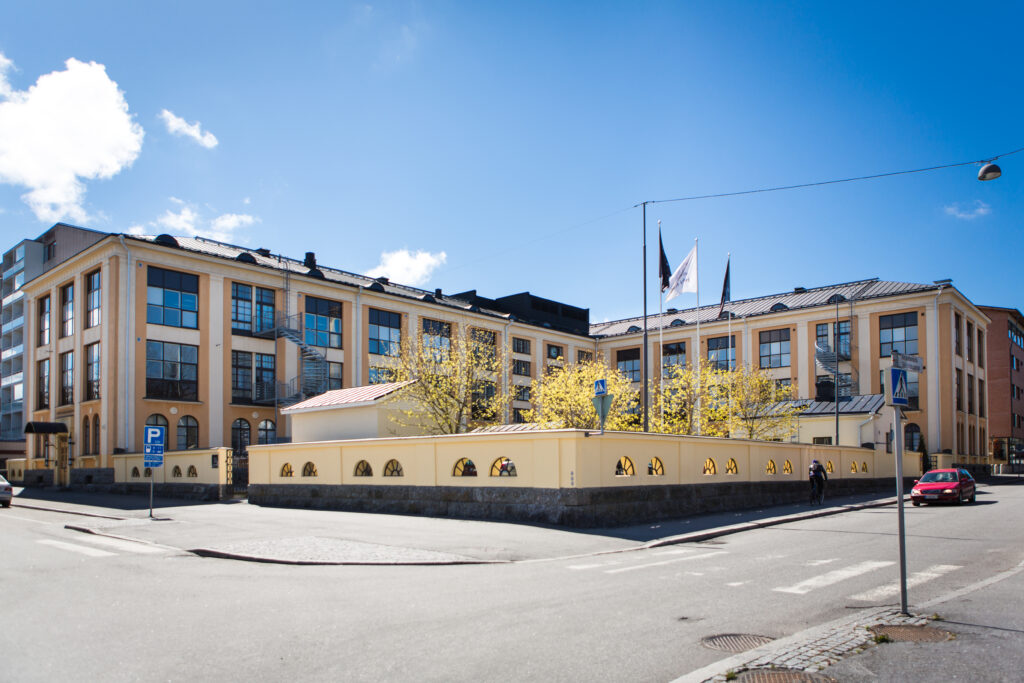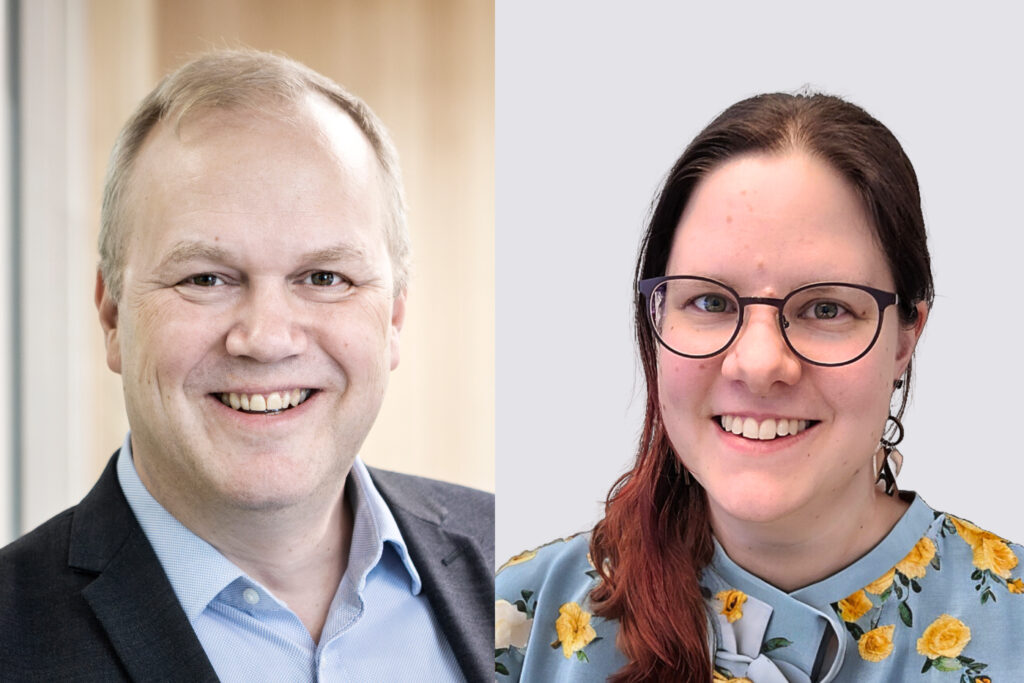Finland is known for having one of the world’s best education systems. The high ranking attracts a large number of international students to pursue an education in Finland. In the Vaasa region, integration support plays a big role in making international students want to stay after completing their studies.
In January 2023, Finnish higher education institutions received around 61,800 applications for degree studies starting in the autumn. Notably, over 86 % of the applications were from international students, more than twice the amount compared to 2022.
Experiences of an international student

Laila Fe Balinggan comes from the Philippines and is a member of one of the indigenous communities called Kankana-ey. She moved to Vaasa in 2021 after she was offered a scholarship to pursue her master studies in the field of education at Åbo Akademi University in Vaasa.
Before moving to Finland, Laila had worked in primary school and in international organisations that work in the area of education across low and middle income countries. The interest to continue her studies in Finland started during her bachelor’s studies, when one of her professors spoke about education across the globe.
She mentioned that Finland has the best education system in the world, which sparked my interest. Since then, I have seen videos on social media about the education in Finland, and it led me to want to experience the system.
Laila says that studying in Finland has been a truly transformative experience. The student-centric approach, emphasis on equality, and overall supportive environment have shaped her into a professional who values critical thinking, collaboration, and inclusivity. She highlights some of the aspects of the education.
Academic staff were approachable and supportive. They fostered an atmosphere of collaboration, where students were encouraged to work together. Finland’s emphasis on critical thinking and problem-solving skills, rather than passively absorbing information, was refreshing.
Laila had the opportunity to meet students from different backgrounds, and what she appreciated the most was Finland’s commitment to equality in education.
Regardless of my background as an international student, I felt valued and included. The university provided a wealth of resources, including language support, mentorship programs, and career guidance, to ensure that every student had an equal opportunity to succeed.
What makes the Finnish education system successful?
International studies have continuously rated Finland among the countries with the best system of education in the world.
- 1st in The Economist’s Worldwide Educating for the Future Index (WEFFI, 2019)
- 2nd in the OECD’s Better Policies for Better Lives report for the highest performing graduates
- Constantly high PISA ratings, one of the top EU countries in terms of student performance in mathematics, science, and reading
According to the Ministry of Education and Culture, some of the characteristics of the education system in Finland is the fact that Finnish society highly values education. Roughly three in four Finns have completed an upper secondary school, and one in three has a degree of higher education.
Finnish society highly values education.
Another feature is that teacher education is very popular and highly appreciated. Finnish teachers are all highly educated and very dedicated to their work. Their introductory education involves teaching practice, and a master’s degree is necessary.
In addition to this, schools provide individual support for childrens’ education and welfare, and other applicable instructions on support are part of the national main curriculum.
Moreover, Finland has a well-organized library system of an excellent quality that mainly offers services free of cost, and by foreign standards Finns are amongst the world’s most active library users.
Finland’s strong literacy level of 100 per cent is among the reasons why Finnish students succeed in various subjects at school and at different phases of education.
Supporting access to working life
Laila Fe Balinggan has been one of the participants of the third round of the Vaasa International Talents programme, a joint project of five higher education institutions that offers international students skills and tools for Finnish working life.

Laila says that Vaasa International Talents has provided support that facilitates her access to the job market and to consider possibilities that the Vaasa region offers to students in her field.
The programme provides career guidance in supporting internationals to find employment and connect with potential employers. It also gave me the tools and confidence to not only focus on job search related to education, but also to navigate different career pathways.
It’s also important to support the involvement of internationals in working life and encourage them to stay in Finland.
One of the things that I like in this programme is that it really focuses not only on integration, but also on retention, which is not commonly seen in a lot of cities and countries. Other than that, it provides guidance in both professional and personal aspect of your life.
On a personal level, Laila says that Vaasa International Talents helps international students adjust to a new culture and develop a sense of community in the city.
“This matters more than just finding a job, because it can lead to a greater sense of belonging and feeling that you are at home,” she says.
On a professional level, this kind of programme gives participants the insights on how to utilise their skills set and work experience in different fields. A programme session in multipotentiality encouraged Laila to establish a marketing agency in Vaasa, applying her previous experience in marketing in addition to education.
Mentoring benefits both international students and mentors
An important part of the Vaasa International Talents programme is to provide mentorship and networking opportunities. According to Laila, these were some of the parts that she liked the most, getting chances to connect with other professionals in the city.
Laila’s own mentor is Ulla Lämsä from Isännöinti Proventia, a property management company based in Vaasa.
I was able to meet Ulla and find out what she used to do in terms of learning and development at Wärtsilä. That connection established a way for me to gain knowledge about other opportunities that I might have otherwise not been aware of.
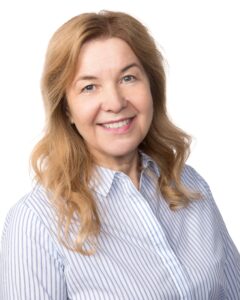
In addition to her current job as Property Manager at Isännöinti Proventia, Ulla Lämsä has a background as an HR Specialist in Leadership at Wärtsilä. Being one of the biggest multinational companies in Vaasa, Wärtsilä has for many decades received international trainees from different parts of the world.
Already in the ’90s, Wärtsilä Finland began to provide almost all internal training courses in English. I worked eight years as a Team Leader in Learning & Development and had the possibility to work with trainees from different countries, such as India, Bangladesh, China, Vietnam, Latin America, Spain, and Italy. It has been nice to help them.
Having worked for a long time in the field of education and development in addition to property management, Lämsä has similar interests as her mentee Laila. She says that mentoring contributes to supporting internationals to be involved in the job market.
I think that this is important, because they get connections to Finnish people and society. Mentorship is one way to learn from experienced people who have already been part of working life for a long time.
According to Lämsä, mentorship is beneficial not only for the students, but also for the mentor.
You get to know more about different cultures and improve your social skills. Also, it’s nice to see when people grow and get opportunities to get forward in life. I think it’s the responsibility of those in working life to help the younger generation.



